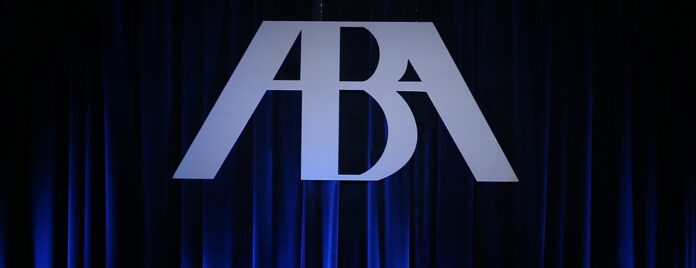An American Bar Association panel that accredits law schools approved a policy to protect free speech on campuses after incidents such as a conservative judge being prevented from speaking at Stanford.
Law schools must protect the rights of staff, students, and faculty to share ideas that may be controversial or unpopular, the Council of the ABA Section of Legal Education and Admissions to the Bar said. Conduct that hinders such speech is prohibited, the council said.
The proposal now goes to the ABA’s House of Delegates for approval in February.
The council approval Friday in Dallas follows student-led protests that broke out at the Yale and Stanford law schools during conservative speaker events. The protests hindered Kristen Waggoner of the Alliance Defending Freedom from speaking at Yale in March 2022 and Fifth Circuit Judge Stuart Kyle Duncan from addressing Stanford students in April 2023.
After Judge Duncan remarks were interrupted during a campus Federalist Society event, Stanford administrators said in an apology that the protests were inconsistent with free speech at the school. Videos of the event posted online show Duncan facing off with protesters who were critical of his rulings.
The ABA council’s new policy forbids disruptive conduct that hinders free expression “by preventing or substantially interfering” with the ability of a law school to carry out its primary functions. Academic freedom at law schools under the plan would include teaching and curating library collections, as well as conducting research, publishing scholarship, and engaging in law school governance.
The new standard also say schools “may” restrict expression that violates the law, falsely defames an individual, constitutes “a genuine threat or harassment,” or unjustifiably invades “substantial” privacy or confidentiality interests.
The council received 22 comments in advance of Friday’s meeting that responded to the proposed new standards. Most of those supported the policy.
As a future lawyer, “I believe it is not only important for me to be able to exercise my freedom of speech, but to be able to have open dialogue with those who would disagree with my views,” April Hurley, a student with the City University of New York School of Law, said in one of the comments.
Some commenters expressed concerns about the teaching of controversial subjects and whether the new standard might come into conflict with the policies of law schools with religious missions.
Law schools’ efforts to protect free speech on their campuses could play a role in their accreditations, ABA President Mary Smith said in an interview in August.
“Free speech is an essential element and core principle in American democracy,” Smith said at the time.
